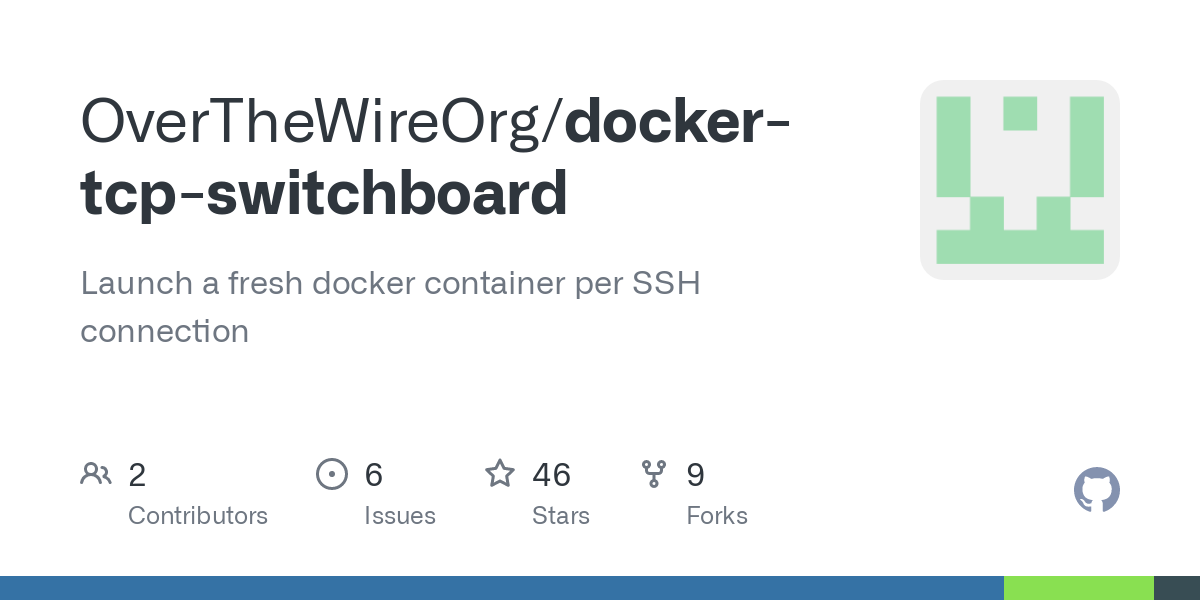- 6 Posts
- 91 Comments

 1·7 days ago
1·7 days agoPersonally, I am loving flux right now. I’m using it to set up my homelab right now, while I learn kubernetes.
I chose flux because it seemed lighter, without a web ui or any extra components I may not want. Using flux feels like getting the declarativity that nixos promised but couldn’t really deliver on.
Also, I did note on another post, that Forgejo, who used to use imperative kubernetes for everything, is now switching to fluxcd.

 1·7 days ago
1·7 days agoDid you use flux 1, or flux 2?
Flux 2 is a complete rewrite, and is basically a different app.

 1·7 days ago
1·7 days agoDoes forgejo really have an integrated CI/CD? I see this article, but it says it was put in beta, and no real notes after that. Although, it does look like the forgejo runner is a fork of https://github.com/nektos/act, which is a tool designed to be compatible with Github Actions, so that looks promising.
flux, Argo (better than flux)
Why Argo better than flux? The only real difference I know about is that argo has a web GUI built in, whereas flux does not.

 2·6 days ago
2·6 days agoIs there a specific android app you need?
https://gitlab.com/android_translation_layer/android_translation_layer/
And of course waydroid. Both these solutions let you run android app on Linux, but like wine, they won’t work for every app.
Waydroid probably works for all apps not dependent on google though. But it’s more difficult to set up than the android translation layer.
Debian already has docker packaged. That’s more convenient.
Debian with the docker convenience script.
They seem to be moving away from this, and it’s not longer the first option on their install page
On their debian page
Use a convenience script. Only recommended for testing and development environments
Also, it should be noted about the first option they recommend, Docker Desktop, that Docker Desktop is proprietary.
I recommend just getting the
docker.ioanddocker-composefrom debian’s repositories.

 19·6 days ago
19·6 days agoUbuntu in WSL comes with systemd enabled. Debian doesn’t, and you have to enable it yourself.
That’s why I chose to have people use Ubuntu in WSL, despite the other downsides. One less step to setup a Linux environment on Windows makes the process smoother.

 4·6 days ago
4·6 days agoOP seems to be trying to install older projects, rather than creating a new project.

 2·10 days ago
2·10 days agoOops… my bad. In my earlier comment I assumed that this would be a Fedora/Ublue based distro, rather than an Arch one. Arch doesn’t have RPM ostree either (which makes me dislike it as a choice for an immutable distro).
But, it’s highly likely that with the steam deck and other projects, there is already an ecosystem for immutable Arch, and a minimal base system to start is advantageous, as Possibly Linux said.

 331·11 days ago
331·11 days agohttps://help.kagi.com/orion/faq/faq.html#oss
We’re working on it! We’ve started with some of our components and intend to open more in the future.
The idea that “open-source = trustworthy” only goes so far. For example, the same tech company that offers a popular open-source browser also has the largest ad/tracking network in history, with that browser playing a significant role in it. Another company with a closed-source browser (using WebKit like Orion) is on the forefront of privacy awareness and technologies in its products.
So, does anyone here remember when all chromium browsers had a secret api that sent extra data to google? Brave, Opera, and Edge got hit by this one, but I think Vivaldi dodged it. They all removed this after they found out, but still…
When it comes to things like browsers, due to the sheer complexity and difficulty to truly audit chromium, I don’t really consider chromium to be “open source” in the same sense as many other apps. Legally, you can see and edit the code. But in practice, it’s impossible to audit all of it, and the development is controlled by a single corporation who puts secrets in it, or removes features that harm their interests (manifest v3). Personally, I consider Minecraft Java to be closer to open source than chromium is.
To say that:
The idea that “open-source = trustworthy” only goes so far
is really just a cop-out and excuse for not being transparent with their code and what they are doing.

 2·12 days ago
2·12 days agoOpensuse doesn’t have rpm-ostree. Their immutable offerings are just snapper/btrfs snapshots before changes to the system.
Such a setup is nowhere near as powerful. rpm-ostree can rebase itself based off of a container/oci image. It can layer images on top of eachother. Rather than just tracking when changes happened, it can also track what change happened, in a git style setup.

 2·25 days ago
2·25 days agoMaybe Whisper? This github repo: https://github.com/linto-ai/whisper-timestamped
Says thay whispher can do timestamps on speech segments. However, I don’t know if that’s what you want, since whispher might only be able to do that if it is transcribing the actual audio, rather than editing another text file.

 3·27 days ago
3·27 days agoIs there a way to do something like this on KDE? I’m considering streaming soon, and I want to be able to share some windows, but not all, or only share a workspace/virtual desktop with my stream.

 4·27 days ago
4·27 days agoIs it possible to allow DRM content for just 1 website ( Netflix ) , while other websites on the same browsers are not allowed to do it?
I would use multiple firefox profiles for this. If you go to
about:profilesor use the commandfirefox -Pto launch firefox, you can view and create other firefox profiles. Each firefox profile is essentially it’s own instance of firefox, complete with different history, extensions, and setting. You could have a “Netflix” profile and a regular browsing profile.

 26·1 month ago
26·1 month agoStallman doesn’t seem to get that pedophilia is wrong because of the hierarchy of power, and the power imbalances between older/younger people, not because of some inherent wrongness about being attracted to a prepubescent person. This is shown by how he condemns some pedophilia, but is accepting of 12+/past puberty. (I despise this logic, because it would also make gay sex and sodomy wrong, as well).
I find this deeply ironic, because his primary issue with proprietary software is the way that it gives developers levels of power over users. From his article Why Open Source Misses the Point
But software can be said to serve its users only if it respects their freedom. What if the software is designed to put chains on its users? Then powerfulness means the chains are more constricting, and reliability that they are harder to remove.
You would expect someone who is so in tune with the hierarchies that appear with software developers, publishers, and users, to also see those same hierarchies echoed in relationships between people of vastly different ages, but instead, we get this. I’m extremely disappointed.
These failures to understand hierarchy and power, are exactly why Stallman shouldn’t be in a position of power. Leaders should continually prove that they understand hierarchy and the effects of their actions on those below them. Someone who doesn’t understand how their power could affect another, shouldn’t be a leader.

 3·1 month ago
3·1 month agoEventually? How about now?

 1·1 month ago
1·1 month agoAmazon has a “refurbished” program, where you can find lots of cheap thin clients and smaller form factor desktop machines.
However, the refurbished computers often have their SSD/HDD replaced with a crappy one that is unreliable, so I would recommend assuming that you assume that you will need to buy storage in addition to that.
But, overall I really like Amazon Refurbished because you get a better quality guarantee (warranty/returns), but a cheaper price.

 18·1 month ago
18·1 month agoAs a someone who has used both Arch, and Debian, neither has less or more bugs.
Debian has the same bugs, over the period of their stable release, and Arch has changing bugs (like a new set every update lol).
Yes, Arch is going to get a lot more features. But it comes at the cost of “instability”. Which is not so much a lack of reliability but instead, how much the software changes. I remember a firefox bug that caused a crash when I attempt to drag bookmarks in my bookmarks bar around, which lasted for like a week — then it went away.
The idea behind projects like Debian, is that for an entity that needs stability, you can simply work around the bugs, since you always know what and where they are. (Well, the actual intent is that entities write patches and submit them to Debian to fix the bugs but no one does that).
Another thing: Debian Stable has more up to date packages than Ubuntu 20.04, and Ubuntu 22.04. This happens because Ubuntu “freezes” a Sid version, and those packages don’t get major updates for a while. So often, the latest Debian stable has newer packages than the older Ubuntu releases.


https://en.wikibooks.org/wiki/Non-Programmer's_Tutorial_for_Python_3